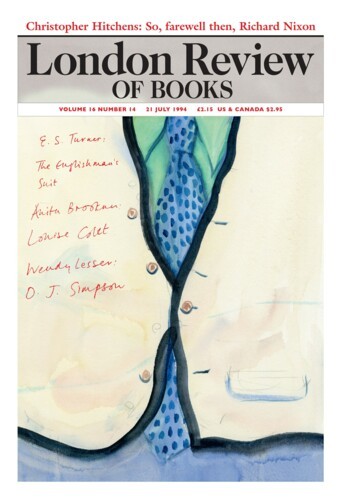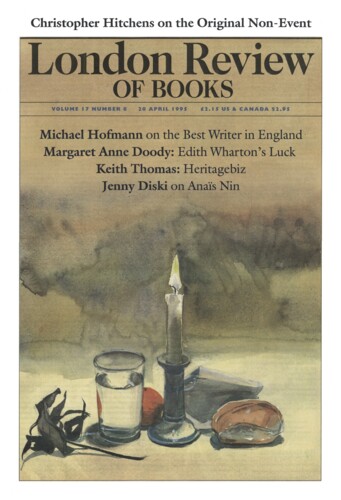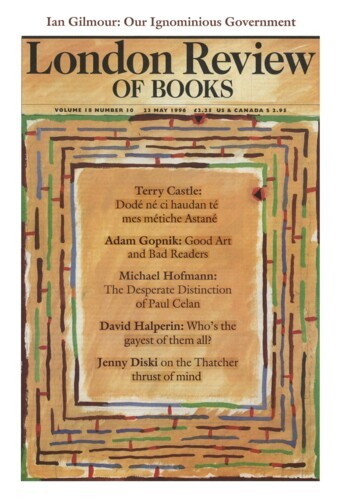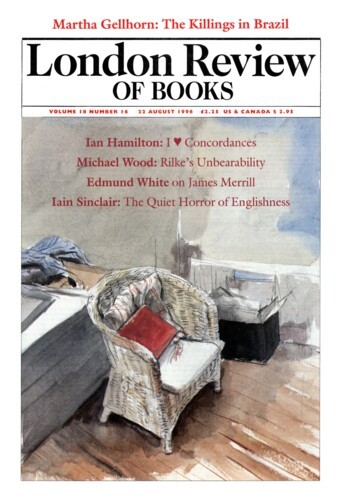Disarming the English
David Wootton, 21 July 1994
The Thirty-Nine Articles required all Englishmen to practise archery on Sundays. For the Elizabethans bearing arms was a duty, not a right. Few of them were allowed to shoot at anything but targets: all game in the kingdom belonged to the Queen and could only be hunted under licence. Bows and arrows, guns and pistols must normally have been kept at home, but every man carried a knife with which to cut his food, and every gentleman a sword. Fights were common, but the law required you, if attacked, to retreat until your back was against the wall: only then could you kill with impunity. After 1604 one particular weapon was singled out as especially in need of control: the Stabbing Act made it always murder, never manslaughter, to kill someone with a knife. This was the one weapon everyone had to hand.




